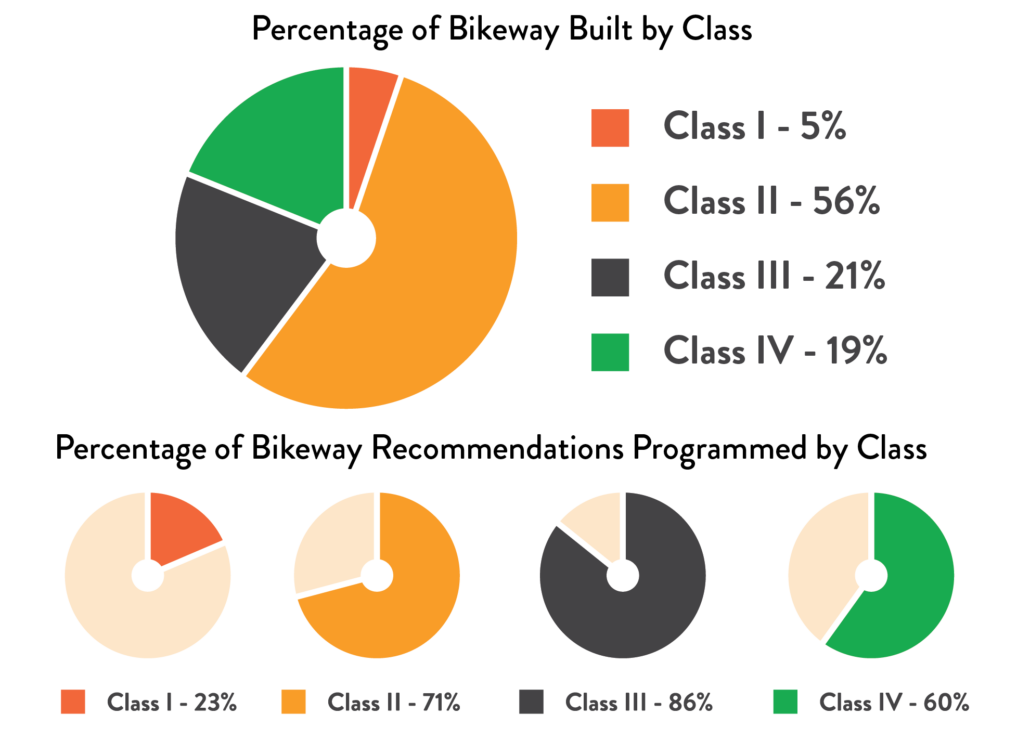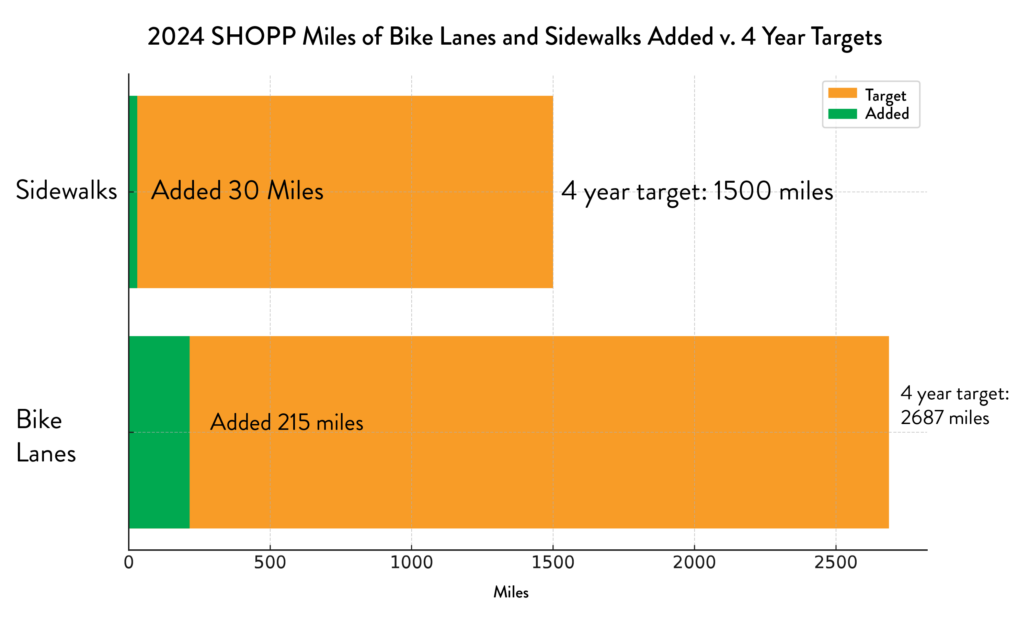California’s Budget Prioritizes Freeway Expansion Over Safe Streets
FOR IMMEDIATE RELEASE
June 9, 2025
Contact: Jared Sanchez, jared@calbike.org, (714)262-0921
Sacramento — CalBike and other advocates had a modest ask from California’s nearly $20 billion 2025 transportation budget: give back the $400 million that was stripped from the Active Transportation Program (ATP) in 2024, as the legislature promised to do in last year’s budget. Yet the legislature’s version, released today, includes no additional funding for the ATP.
Last year’s cutbacks limited the program to funding just 13 projects for safe biking and walking infrastructure across the state. The missing funds could immediately jumpstart 30 local infrastructure projects that applied for funding and are ready to break ground.
In tight budget years like 2025, cuts aren’t distributed evenly. Programs backed by powerful industries, such as money to build new highway lanes, receive billions despite their negative impact on air quality and greenhouse gas emissions, while the Active Transportation Program, which saves lives and provides climate solutions, is left begging for crumbs.
“The Active Transportation Program is the victim of its own success, continuously oversubscribed. Yet the governor and some of our lawmakers fail to recognize its value,” says CalBike Policy Director Jared Sanchez. “The disregard for biking and walking at the state level undercuts state climate policy and makes it harder for local governments to meet residents’ demands for safer streets.”
Improvements that reduce traffic fatalities and make it safer and more appealing to walk and bike are very popular in California communities. The number of projects looking for ATP funding grows every cycle, and the number of high-scoring projects eligible for funding increases.
The demand for local active transportation infrastructure, which has been proven to reduce injuries and fatalities for people using all transportation modes and moves California closer to its climate goals, continues to grow. We should increase the budget for the ATP, yet lawmakers have slashed its budget, nearly leading the California Transportation Commission to cancel the most recent funding cycle due to a lack of funds.
Climate change isn’t something we can deal with down the road; it’s here, now. Safer streets shouldn’t be a “someday when we have extra cash” project, but an urgent necessity to prevent more children and other vulnerable road users from dying needlessly. Our budget priorities show our values. This year, California has sided with polluters over people.




